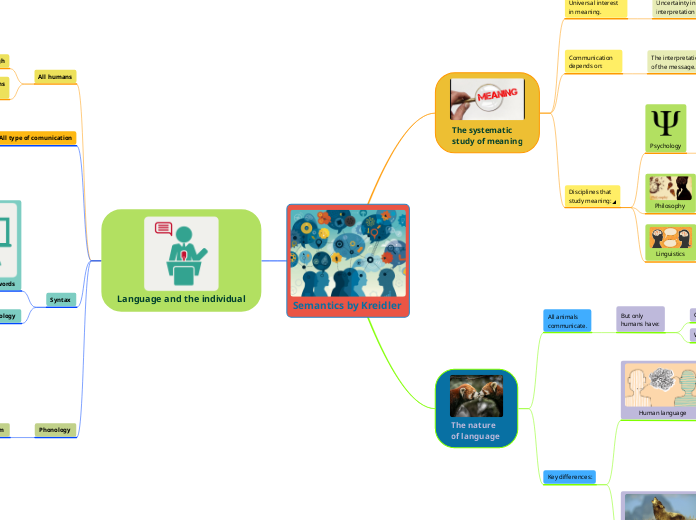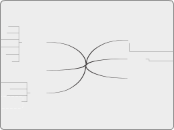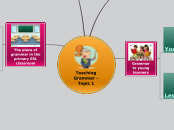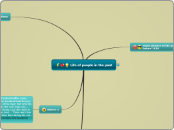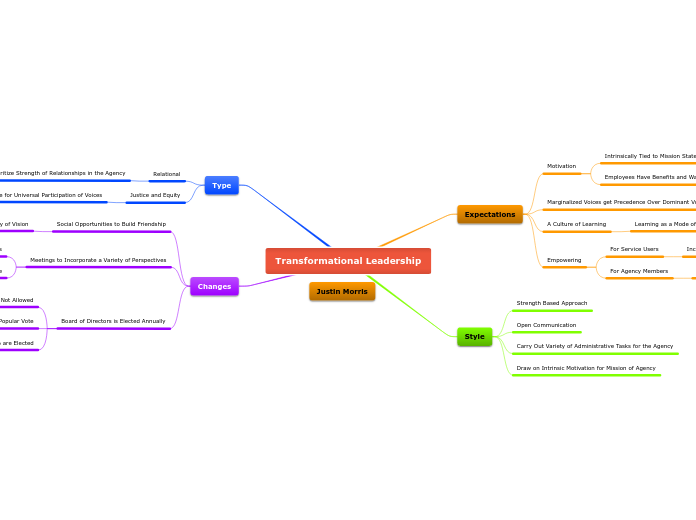Semantics by Kreidler
Language and the individual
Phonology
The form
Speech sounds are organized
Syntax
Morphology
2-. The derivation
1-. The account
Are the classes of words
All type of comunication
The grammar contains 3 parts
3.- Description
2-. The knowledge
1.- Semantics
Its creatives and not restricted
All humans
Learn through imitation the actions
of his society
Learn the language through
In the society in which it grows up
The nature of language
Key differences:
Animal communication
Is limited to:
Predefined messages.
Specific stimuli.
Human language
It's composed of:
Interchangeable units at two levels:
Phonemes
It allows to talk about:
Abstract concepts.
Future
Past
It's stimulus-free and creative.
All animals communicate.
But only humans have:
Without external stimuli.
Creative language.
The systematic study of meaning
Disciplines that study meaning:
Linguistics
Semantics:
It's the study of the meaning.
How meanings are expressed.
How language works.
Philosophy
How we know and relate facts.
Psychology
They explore how the mind:
Works with meaning.
Searches for meaning.
Communication depends on:
The interpretation of the message.
For this reason:
Different meanings of a poem or story.
Various interpretations of laws.
There are jokes with double meanings.
Universal interest in meaning.
Uncertainty in the interpretation of:
Messages
Words
